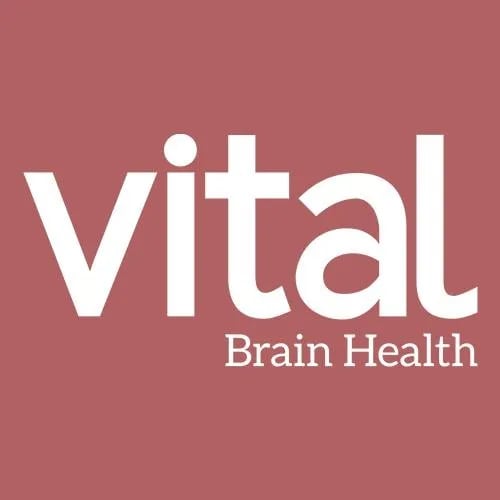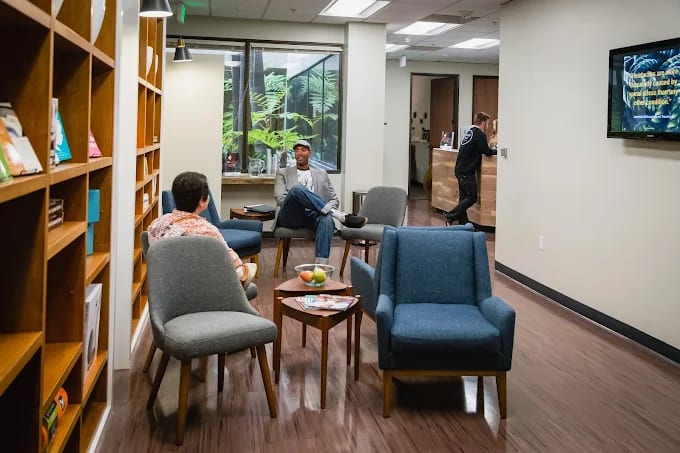Types of Cognitive Therapies Offered
When it comes to seeking mental health treatment, finding the right type of therapy can make all the difference. Los Angeles Cognitive Therapy . In Los Angeles, a city renowned for its diverse population and innovative approaches to healthcare, a variety of cognitive therapies are available to meet the unique needs of individuals. Cognitive therapies are a group of therapeutic approaches that focus on changing negative thought patterns and behaviors to improve emotional well-being and mental health. Here, we delve into some of the most prominent types of cognitive therapies offered in Los Angeles, each with its own distinct approach and benefits.
Cognitive Behavioral Therapy (CBT) is perhaps the most well-known form of cognitive therapy. It is a structured, goal-oriented therapy that helps individuals identify and challenge distorted thinking patterns and develop healthier behaviors and coping strategies. CBT is highly effective for a range of issues, including anxiety, depression, and post-traumatic stress disorder (PTSD). In Los Angeles, many therapists specialize in CBT, offering personalized treatment plans that cater to the citys diverse population.
Another notable cognitive therapy is Dialectical Behavior Therapy (DBT), which was initially developed to treat borderline personality disorder but has since been adapted for other conditions such as eating disorders and substance abuse. DBT combines cognitive-behavioral techniques with concepts from Eastern mindfulness practices. It emphasizes the development of emotional regulation, distress tolerance, and interpersonal effectiveness. The mindfulness aspect of DBT resonates well with the wellness culture prevalent in Los Angeles, making it a popular choice for those seeking a holistic approach to mental health.
Acceptance and Commitment Therapy (ACT) is also widely available in Los Angeles. ACT encourages individuals to accept their thoughts and feelings rather than fighting or feeling guilty about them. It focuses on living in accordance with ones values and committing to action that aligns with those values. Los Angeles, with its emphasis on self-improvement and personal growth, provides an ideal environment for ACT practitioners and clients.
Mindfulness-Based Cognitive Therapy (MBCT) is another option for those seeking cognitive therapy in Los Angeles. MBCT combines traditional cognitive therapy techniques with mindfulness strategies, helping individuals break the cycle of recurrent depression and anxiety. By fostering a non-judgmental awareness of the present moment, MBCT empowers individuals to disengage from negative thought patterns and reduce the risk of relapse. The emphasis on mindfulness aligns with the citys broader cultural trends towards meditation and holistic health.

In conclusion, Los Angeles offers a wealth of cognitive therapy options, each tailored to address different psychological needs and preferences. From CBT, which provides a structured framework for addressing specific issues, to DBT, ACT, and MBCT, which integrate mindfulness and acceptance, there is a cognitive therapy approach to suit every individual. The citys vibrant mental health community, coupled with its openness to innovative and diverse therapeutic modalities, ensures that residents and visitors alike can find the support they need on their journey to mental well-being.
Qualifications and Experience of Therapists
When seeking the best cognitive therapy in Los Angeles, the qualifications and experience of therapists are crucial factors to consider. A therapists credentials and background can significantly impact the effectiveness of the therapeutic process, providing clients with the confidence and assurance that they are in capable hands.
Qualifications serve as the foundational pillar that ensures a therapist is well-equipped with the necessary knowledge and skills to provide effective cognitive therapy. Typically, a qualified cognitive therapist in Los Angeles will hold an advanced degree in psychology, counseling, or a related field. This educational background provides them with a comprehensive understanding of human behavior, mental processes, and therapeutic techniques. Furthermore, therapists often undergo rigorous training programs that focus specifically on cognitive therapy methods, ensuring they are well-versed in the latest research and approaches in the field.
In addition to formal education, licensure is another critical component of a therapists qualifications. In California, therapists must meet stringent state licensing requirements, which include completing a certain number of supervised clinical hours and passing relevant examinations. This licensure process ensures that therapists adhere to professional standards and ethical guidelines, safeguarding client welfare and promoting high-quality care.

While qualifications are essential, the experience of a therapist is equally important in determining their effectiveness. Experienced therapists bring a wealth of practical knowledge gained from years of working with diverse clients. They have honed their skills in identifying and addressing a wide range of cognitive and emotional issues, from anxiety and depression to more complex mental health challenges. This experience enables them to tailor their therapeutic approach to meet the unique needs of each client, fostering a more personalized and effective treatment experience.
Moreover, experienced therapists in Los Angeles often engage in ongoing professional development to stay abreast of advancements in the field. By attending workshops, conferences, and continuing education courses, they ensure their practice remains informed by the latest scientific findings and therapeutic innovations. This commitment to lifelong learning underscores a therapists dedication to providing the best possible care to their clients.
In conclusion, when searching for the best cognitive therapy in Los Angeles, it is vital to consider both the qualifications and experience of therapists. A therapists educational background, licensure, and practical experience collectively ensure they possess the expertise needed to guide clients through the challenges they face. By prioritizing these factors, individuals seeking therapy can find a skilled professional who will support them in achieving their mental health goals effectively and compassionately.

Success Stories and Testimonials
Cognitive therapy has become an indispensable tool for countless individuals seeking mental health support, and Los Angeles, with its vast array of talented practitioners, stands as a beacon of excellence in this field. The city's diverse population and progressive mindset create a fertile ground for therapeutic practices that are both innovative and effective. As a result, there are numerous success stories and testimonials that highlight the profound impact cognitive therapy has had on individuals' lives in this vibrant city.
One of the most compelling success stories comes from Sarah, a 32-year-old graphic designer who had been struggling with anxiety and depression for years. Despite trying various forms of medication and therapy, Sarah found herself stuck in a cycle of negative thoughts and self-doubt. It wasn't until she began cognitive therapy with a Los Angeles-based therapist that she started to see a significant change. Through targeted techniques, she learned to identify and challenge her cognitive distortions, gradually reshaping her perspective and regaining control over her life. Today, Sarah speaks passionately about her journey, sharing how cognitive therapy not only alleviated her symptoms but also empowered her to pursue her career and personal goals with renewed confidence.
Another inspiring testimonial comes from Mark, a 45-year-old entrepreneur who faced overwhelming stress and burnout. Running a successful business in the competitive Los Angeles market took a toll on his mental health, leading to sleepless nights and strained relationships. Los Angeles CA brain training therapy Turning to cognitive therapy, Mark discovered strategies to manage his stress more effectively. His therapist helped him reframe his thoughts, prioritize self-care, and set achievable boundaries. As a result, Mark not only improved his mental well-being but also enhanced his productivity and leadership skills. His experience underscores the transformative power of cognitive therapy in fostering resilience and balance in high-pressure environments.
These stories are just a glimpse into the multitude of positive outcomes stemming from cognitive therapy in Los Angeles. The city's therapists are known for their dedication to evidence-based practices, customizing their approaches to meet the unique needs of each client. Whether addressing anxiety, depression, stress, or other mental health challenges, the testimonials consistently highlight a common thread: cognitive therapy provides individuals with the tools they need to understand and alter their thought patterns, leading to lasting change and personal growth.
In conclusion, the success stories and testimonials of those who have undergone cognitive therapy in Los Angeles serve as powerful reminders of the therapys efficacy. They illustrate the profound impact skilled therapists can have in helping individuals overcome mental health challenges and live more fulfilling lives. For anyone considering cognitive therapy, these narratives offer hope and encouragement, demonstrating that change is possible and that the journey to mental wellness is within reach.
How to Choose the Right Therapist
Choosing the right therapist is a crucial step towards achieving emotional well-being and personal growth, especially when seeking cognitive therapy in a diverse and bustling city like Los Angeles. Cognitive therapy, a form of psychotherapy that emphasizes the importance of changing negative thought patterns to improve emotional regulation and develop personal coping strategies, can be profoundly effective. However, its success largely hinges on finding the right therapist who can tailor their approach to suit your individual needs. Here are some considerations to guide you in this important selection process.
First and foremost, it is essential to understand your own goals and needs. Are you seeking therapy to manage anxiety, depression, or stress? Or are you looking to address specific life challenges, such as relationship issues or work-related stress? Defining your objectives will help you narrow down therapists who specialize in those areas. In Los Angeles, which offers a vast array of mental health professionals, having a clear understanding of your needs will streamline your search.
Once your goals are identified, research becomes key. Start by gathering recommendations from trusted sources, such as friends, family, or healthcare providers. Online platforms and directories can also be valuable resources. Websites like Psychology Today offer detailed profiles of therapists, including their specialties, treatment approaches, and client reviews. Pay attention to therapists who specialize in cognitive behavioral therapy (CBT) or other cognitive approaches, as these are specifically designed to help modify dysfunctional thinking and behavior.
Credentials and experience should also play a significant role in your decision-making process. At Vital Brain Health we help with neurofeedback los angeles clinic so you can smile a little more while finding balance in life In Los Angeles, therapists are required to have specific licenses, such as those for clinical psychologists (PhD or PsyD), licensed clinical social workers (LCSW), or marriage and family therapists (LMFT). Verify their credentials and ensure they have substantial experience in cognitive therapy. A seasoned therapist will have a deeper understanding of the nuances involved in cognitive approaches and can adapt their methods to better fit your personal needs.
Another critical factor is the therapists approach and therapeutic style. Cognitive therapy is inherently collaborative, so its important to find a therapist whose style resonates with you. During initial consultations, observe how they communicate and whether they foster a sense of trust and comfort. Are they empathetic and understanding? Do they listen actively and provide feedback that feels constructive? A good therapist should make you feel heard and understood, setting the foundation for a productive therapeutic relationship.
Logistics also matter. Consider practical aspects such as the therapists location, availability, and session fees. Los Angeles is a sprawling city, and finding a conveniently located therapist can make a significant difference in maintaining regular sessions. Additionally, ensure that their availability aligns with your schedule and that their fees are within your budget. Some therapists offer sliding scale fees or accept insurance, which can alleviate financial concerns.
Lastly, trust your instincts. The therapeutic journey is deeply personal, and your comfort with the therapist is paramount. If something feels off or if you dont feel a connection, it's perfectly acceptable to explore other options. Therapy is a partnership, and both parties should feel committed and engaged in the process.
In conclusion, choosing the right therapist in Los Angeles for cognitive therapy involves careful consideration of your personal goals, thorough research, evaluation of credentials, and an assessment of compatibility and logistics. By taking these steps, you increase your chances of finding a therapist who can effectively guide you towards achieving mental clarity and emotional resilience. Remember, the right therapist can make a profound impact on your journey to a healthier, happier life.
